Tuesday, November 21, 2017
Liturgy, Authority, and Postmodernity
Revisiting and understanding the “Galileo Affair” | CWR
Staff | “The Galileo Affair needed to be looked at again,” says Dom
Paschal Scotti, “because it is one the great events, climactic events
even, in European history and because it has so often been used
polemically and ahistorically.”
On capital punishment, even the pope’s defenders are confused | Dr. Edward Feser | There simply is no way to make an absolute condemnation of capital punishment consistent with past scriptural and papal teaching.
Capital Punishment and the Papal Magisterium: A Response to Dr. Edward Feser | Dr. Robert Fastiggi | The issue is not so much whether prior popes were in error in their scriptural citations. The issue is whether their scriptural appeals qualify as definitive and infallible judgments of the papal Magisterium.
Catholic theologians must set an example of intellectual honesty: A reply to Prof. Robert Fastiggi | Dr. Edward Feser | In order to defend the suggestion that a pope could teach that capital punishment is always and intrinsically immoral, you have to maintain that the Church has for 2000 years been teaching grave moral error.
Is there really a definitive teaching of the Church on capital punishment? | Robert Fastiggi | A second response to Professor Edward Feser.
Liturgy, Authority, and Postmodernity | Dom Alcuin Reid | As our self-consciously modern liturgical rites approach their fiftieth birthdays we would do well not to cling to them uncritically. Nor can we follow postmodernity down paths of ecclesial and liturgical subjectivism.
Martin Luther: Father of modern liberty or political absolutism? | Robert R. Reilly | The German father of Protestantism did not seem to consider that his metaphysical undermining of the Church’s authority and the abandonment of natural law would ultimately clear the path to absolute political authority.
The Reformation reformed | Sandra Miesel | The chronology of the Reformation no longer opens with Luther’s 95 Theses. The seeds of revolt were planted long before 1517.
Fr. Thomas G. Weinandy explains his critical letter to Pope Francis | Carl E. Olson | “First,” says the noted Capuchin priest and theologian, “I decided to write Pope Francis a letter, which I intended then to publish unless he adequately addressed the issues I raised.”
Superstition, Dissent, and Scandal? A brief defense of Fr. Thomas Weinandy | Dr. Michael Sirilla | Some pundits from both progressive and orthodox quarters have been quick to criticize and even condemn Fr. Weinandy and his missive to the Pope. Thus, a brief defense of Fr. Weinandy is in order.
Why does Fr. Martin persist in embarrassing, sleight-of-substance tactics? | Carl E. Olson | The well-known Jesuit priest and author insists that Fr. Thomas G. Weinandy is a “dissenter”. That would be funny if it weren’t so stupid.
Beyond the “Hate Map”: How the Southern Poverty Law Center is hurting Christian groups | Leslie Fain | After her pro-family group was targeted by the SPLC, Jennifer Roback Morse says, “I felt the time was right to speak out.”
Focusing again on the Four Last Things | Fr. Peter M.J. Stravinskas | Our Christian goal ought to be nothing short of Heaven – not escaping Hell by the skin of our teeth, nor being resigned to “doing time” in Purgatory.
The HollyChurch Double Standard | Patrick Coffin | God willing, if the long Lent of 2002 led to badly needed reforms for the Catholic Church, the long fall of 2017 will do the same for Hollywood.
Is opposition to the death penalty Thomistic? | Joseph G. Trabbic | Given Pope Francis’s own high regard for St. Thomas (together with the historical papal approbation he has enjoyed) when it comes to doctrinal issues, we might ask how the opposition to the death penalty articulated by the Pope compares with the teaching of the Doctor Communis.
“Stranger Things 2”: Not quite strange enough | Thomas P. Harmon | In its second season, Stranger Things shifts from a show about human beings with monsters in it, to a show about monsters with human beings in it.
Archbishop Naumann, Cardinal Cupich, and the mysterious middle finger | Carl E. Olson | While Naumann has shown that he is a warrior and a leader--who can also dialogue when the moment calls for dialogue--it’s not evident at all that Cupich, however much he “champions engagement and dialogue”, would ever really do battle for the prolife cause.
The Creative Catholic: Carl E. Olson | K.V. Turley | CWR’s editor on writing: “Both a joy and a responsibility…it is full of demands and full of graces.”
On capital punishment, even the pope’s defenders are confused | Dr. Edward Feser | There simply is no way to make an absolute condemnation of capital punishment consistent with past scriptural and papal teaching.
Capital Punishment and the Papal Magisterium: A Response to Dr. Edward Feser | Dr. Robert Fastiggi | The issue is not so much whether prior popes were in error in their scriptural citations. The issue is whether their scriptural appeals qualify as definitive and infallible judgments of the papal Magisterium.
Catholic theologians must set an example of intellectual honesty: A reply to Prof. Robert Fastiggi | Dr. Edward Feser | In order to defend the suggestion that a pope could teach that capital punishment is always and intrinsically immoral, you have to maintain that the Church has for 2000 years been teaching grave moral error.
Is there really a definitive teaching of the Church on capital punishment? | Robert Fastiggi | A second response to Professor Edward Feser.
Liturgy, Authority, and Postmodernity | Dom Alcuin Reid | As our self-consciously modern liturgical rites approach their fiftieth birthdays we would do well not to cling to them uncritically. Nor can we follow postmodernity down paths of ecclesial and liturgical subjectivism.
Martin Luther: Father of modern liberty or political absolutism? | Robert R. Reilly | The German father of Protestantism did not seem to consider that his metaphysical undermining of the Church’s authority and the abandonment of natural law would ultimately clear the path to absolute political authority.
The Reformation reformed | Sandra Miesel | The chronology of the Reformation no longer opens with Luther’s 95 Theses. The seeds of revolt were planted long before 1517.
Fr. Thomas G. Weinandy explains his critical letter to Pope Francis | Carl E. Olson | “First,” says the noted Capuchin priest and theologian, “I decided to write Pope Francis a letter, which I intended then to publish unless he adequately addressed the issues I raised.”
Superstition, Dissent, and Scandal? A brief defense of Fr. Thomas Weinandy | Dr. Michael Sirilla | Some pundits from both progressive and orthodox quarters have been quick to criticize and even condemn Fr. Weinandy and his missive to the Pope. Thus, a brief defense of Fr. Weinandy is in order.
Why does Fr. Martin persist in embarrassing, sleight-of-substance tactics? | Carl E. Olson | The well-known Jesuit priest and author insists that Fr. Thomas G. Weinandy is a “dissenter”. That would be funny if it weren’t so stupid.
Beyond the “Hate Map”: How the Southern Poverty Law Center is hurting Christian groups | Leslie Fain | After her pro-family group was targeted by the SPLC, Jennifer Roback Morse says, “I felt the time was right to speak out.”
Focusing again on the Four Last Things | Fr. Peter M.J. Stravinskas | Our Christian goal ought to be nothing short of Heaven – not escaping Hell by the skin of our teeth, nor being resigned to “doing time” in Purgatory.
The HollyChurch Double Standard | Patrick Coffin | God willing, if the long Lent of 2002 led to badly needed reforms for the Catholic Church, the long fall of 2017 will do the same for Hollywood.
Is opposition to the death penalty Thomistic? | Joseph G. Trabbic | Given Pope Francis’s own high regard for St. Thomas (together with the historical papal approbation he has enjoyed) when it comes to doctrinal issues, we might ask how the opposition to the death penalty articulated by the Pope compares with the teaching of the Doctor Communis.
“Stranger Things 2”: Not quite strange enough | Thomas P. Harmon | In its second season, Stranger Things shifts from a show about human beings with monsters in it, to a show about monsters with human beings in it.
Archbishop Naumann, Cardinal Cupich, and the mysterious middle finger | Carl E. Olson | While Naumann has shown that he is a warrior and a leader--who can also dialogue when the moment calls for dialogue--it’s not evident at all that Cupich, however much he “champions engagement and dialogue”, would ever really do battle for the prolife cause.
The Creative Catholic: Carl E. Olson | K.V. Turley | CWR’s editor on writing: “Both a joy and a responsibility…it is full of demands and full of graces.”
Subscribe to:
Post Comments (Atom)



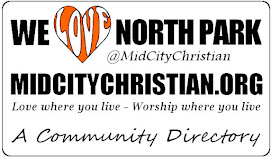



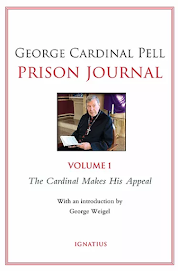

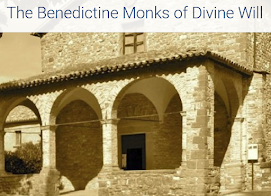


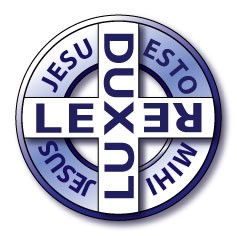

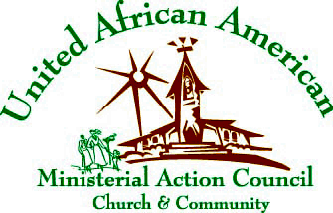

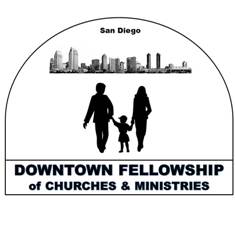




No comments:
Post a Comment